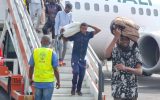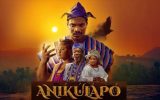I grew up in Nigeria at a time when there was hardly any conflict, not like what exists today but this perceived utopia was often interrupted by subtle layers of tribalism and microaggressions between the major tribes in Nigeria.
I lived in a part of Lagos called Surulere. Surulere was an intersection where a Yoruba community met with Hausa and Fulani settlers from Northern Nigeria. From time to time, the tribes would clash, leading to bloodshed and serious loss of property.
In the thick of one of these clashes, a police station was burned to the ground. Parents frequently woke up earlier to wash blood stains off the streets and rather infrequently, dispose of heads and body parts. By 2005, we had moved out of our community in Surulere to another town just on the outskirts of Lagos. A new government that criminalized violent clashes took over in Lagos and the conflicts reduced drastically.
Conflicts arise because there is a lack of mutual respect. This lack of respect digs a larger hole in relations with the other involved parties and can easily turn a micro problem into a macro problem if left unresolved.
Africa is a beautiful multicultural salad with its number of tribes existing in the thousands. These tribes could exist as standalone nations. However, these tribes, with their separate ideologies, have been lumped together to exist as nations due to our shared history of colonialism. An example of this is Nigeria and the separationist state of Biafra. While Biafra was a secessionist state in Eastern Nigeria that existed from 30 May 1967 to January 1970, agitations for a new state are at a record high at the moment.
The inhabitants of Biafra comprised mostly of the Igbos who led the secession due to economic, ethnic, cultural and religious tensions among the various peoples of Nigeria. The separatist efforts of Biafra resulted in a civil war that lasted three years.
Absence of dialogue, as well as differences in culture and mannerisms, have led to a consistent request for a separate state. This request has brought with it, threats of war which pose a significant problem especially for the peace and security of Nigeria and probably, West Africa.
But tribal disputes are not the only problem. Religious intolerance, as well as a severe thirst for power by Africans and leaders, have brought about threats to the peace and security of individual African states.
Boko Haram led by Abubakar Shekau,- he’s been ‘’killed’’ so many times,- is an Islamic extremist and terror group operating in areas of North Eastern Nigeria, Chad, Niger and Northern Cameroon. Boko Haram is responsible for over 2.3 million people who have become internally displaced citizens.
Founded as a Sunni Islamic fundamentalist sect advocating for the establishment of an Islamic state in Nigeria, Boko Haram opposes westernization of the Nigerian society as well as what is perceived as the concentration of the wealth of the country among the Christian south of the country. The sect’s activities in Nigeria, Chad and Cameroon have led to a collaboration between the militaries of Nigeria, Chad, Niger and Cameroon, with heavy work done to reclaim lands lost as well as rescue girls that were abducted from their schools.
Working based on a principle of bigotry, Boko Haram has evolved from a backyard nuisance to an international phenomenon.
A lot of issues lie with Africa currently and for the sake of our collective futures as Africans, drastic changes need to be made. Some of them are itemized below:
The African Union needs to be more powerful and assertive
The strength of Germany is not in Germany alone but in the Unity of the European Union. Democracy although flawed, still remains one of the best ways for people to be represented and a transparent democratic system will ultimately lead to better leaders. The democratic challenges confronting Africa could be solved by a stronger union that can place stronger sanctions on member countries to demand better. Morocco’s ascension into the AU is an example of the weakness and probable lack of strong principle in the AU. Its laws require member states to run a democracy but Morocco does not currently run a democracy. A lack of strength of the AU spells a lack of peace and security for Africa on the long run.
Africa needs ECOMOG on a larger scale
Funds cleaved from national budgets should be set aside to replicate ECOMOG for the rest of Africa. The Economic Community of West African States Monitoring Group is a West African multilateral armed force established by the Economic Community of West African States. ECOMOG had previously deployed troops to Sierra Leone and Guinea-Bissau to end the RUF rebellion and Guinea-Bissau civil war and more recently, to Gambia to force Yahya Jammeh to step down after losing the election. Any attempts by African leaders or nations to go back on agreements with its citizens needs to be met with sanctions and possible external aggression. In the event that African countries need military assistance like in the case of the Boko Haram, an African military force could help solve the problem.
Improve quality of education
The quality of education in Africa compared to other parts of the world is rudimentary at best. While African children have consistently displayed courage and resilience when put against other children, the education at home doesn’t quite allow for us to innovate and disrupt the status quo. A fresh type of education in Africa will bring inclusion, it will help us learn, unlearn and relearn the values that make us human – problem-solving, innovation, kindness. A lot of insecurity in Africa exists as a result of a lack of quality of education. Better opportunities lead to more jobs and less time to threaten peace and security. Quality education can also help with the creation and implementation of new security systems.
Open African borders
I will call for an open or lighter border system for Africa. An open African border for African nationals will boost tourism as well as open nations and citizens to opportunities for collaboration. A key to empathy is to allow people experience for themselves, the beauty and the pain of other people. With over a thousand tribes and cultures, the peace and security of Africa can be assured by allowing Africans visit and work together.
As we look at our collective futures as Africans, we need to take a look at the world and all of its beauties and challenges and look for ways we can help solve the problems. Peace and security are everybody’s business and Africa is a gift to be passed to generations unborn.
A better Africa is one where personal sentiments and diverse cultures are catered for and respected. It’s one where religion, sexual preference and association are allowed to exist. A better Africa is one where we realize that we are kings and live like it.














